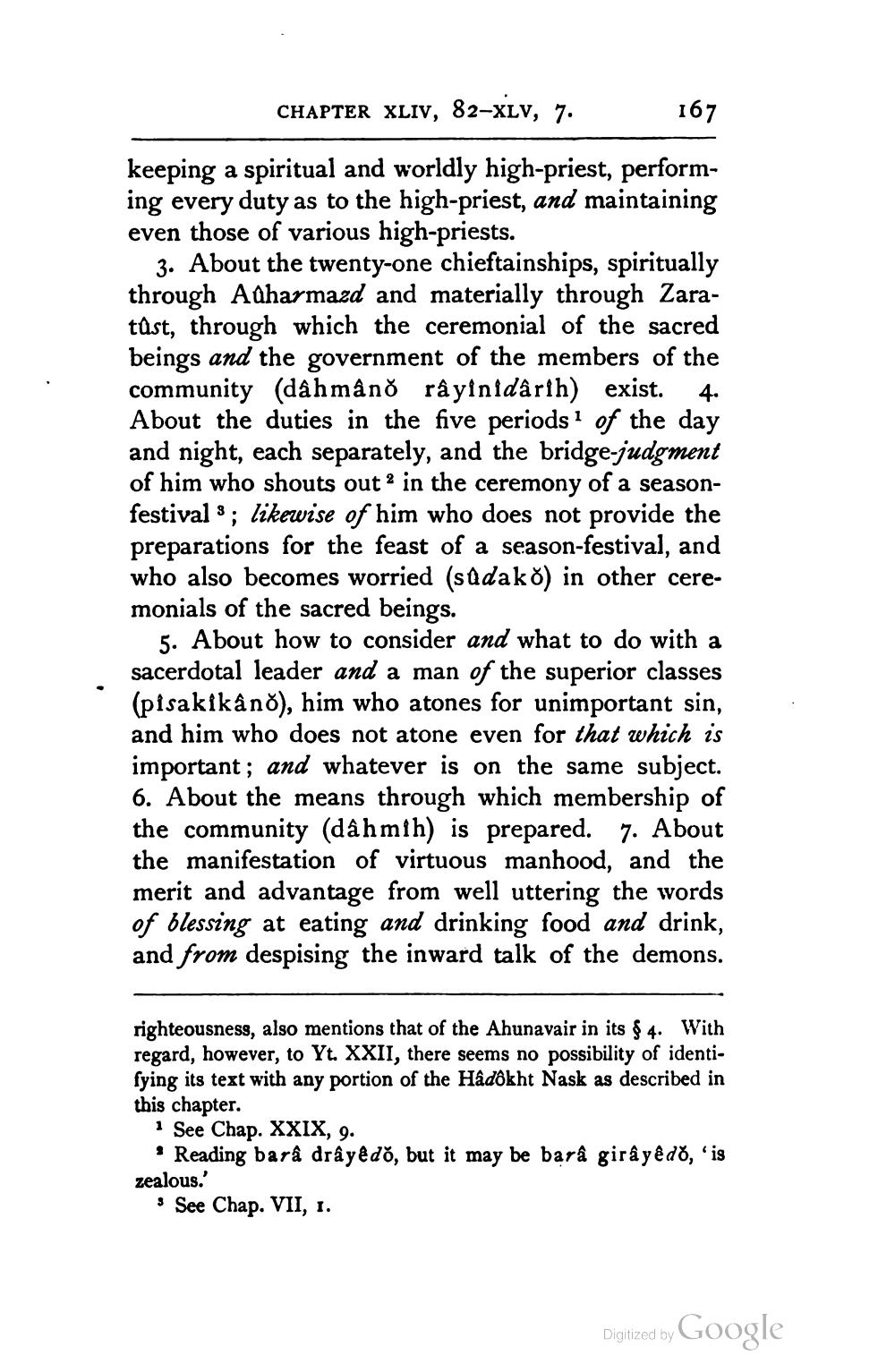________________
CHAPTER XLIV, 82-XLV, 7.
167
keeping a spiritual and worldly high-priest, performing every duty as to the high-priest, and maintaining even those of various high-priests.
3. About the twenty-one chieftainships, spiritually through Adharmazd and materially through Zaratūst, through which the ceremonial of the sacred beings and the government of the members of the community (dâhmâně râyinidârih) exist. 4. About the duties in the five periods of the day and night, each separately, and the bridge-judgment of him who shouts out? in the ceremony of a seasonfestival 3 ; likewise of him who does not provide the preparations for the feast of a season-festival, and who also becomes worried (sadako) in other ceremonials of the sacred beings.
5. About how to consider and what to do with a sacerdotal leader and a man of the superior classes (pisakikano), him who atones for unimportant sin, and him who does not atone even for that which is important; and whatever is on the same subject. 6. About the means through which membership of the community (dâhmih) is prepared. 7. About the manifestation of virtuous manhood, and the merit and advantage from well uttering the words of blessing at eating and drinking food and drink, and from despising the inward talk of the demons.
righteousness, also mentions that of the Ahunavair in its $ 4. With regard, however, to Yt. XXII, there seems no possibility of identifying its text with any portion of the Hádokht Nask as described in this chapter.
See Chap. XXIX, 9. • Reading barâ drâyê do, but it may be barà girâyêdo, “is zealous.'
See Chap. VII, 1.
Digitized by Google




